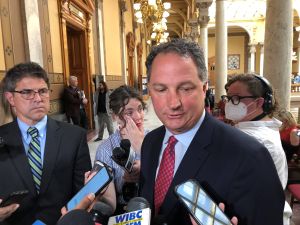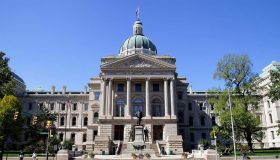
STATEHOUSE — The Indiana House has passed the state’s next budget for the next two years.
The passage of the bill marks the point in the legislative session when both chambers will plan to shift gears and begin to take up the passed versions of bills from the opposite chamber.
Healthcare, school choice funding, and income taxes are the dominating tenants of the House version of the state budget which is said to be worth around $43 billion in spending for the next two years.
The budget includes substantial investment in public health programs like Gov. Eric Holcomb called for in his State of the State, but the House version does not include as much funding as the governor would like. House Speaker Todd Huston said the number on healthcare in the budget is a starting point in working with the State Senate.
“I don’t think we know if it’s the appropriate amount,” Huston said. “We want to get Senate Bill 4 and have those conversations on how those dollars are distributed. We wanted to get a significant amount of money into public health to make sure that as the budget went over to the Senate they would have a placeholder in that.”
Senate Bill 4 includes specific appropriations that would give state funding to county public health departments. Huston said that the future of that bill as well as the final budget forecast due to come out soon will help determine the final amount when it comes to public health spending.
The budget also includes $600 million to fund initiatives that will essentially make all families in Indiana eligible to receive vouchers that can be used to send their children to private schools. That number is double what was used on school vouchers before and has some state senators skeptical of the increased spending in that regard.
“Look, (the Senate) will have, I fully recognize, they’ll have different priorities,” Huston said of the skepticism. “We’ll work through those different priorities with them, but not one expansion of the voucher program has been done without the cooperation of the Senate and I expect the same this year.”
Finally, the budget includes slight cuts to state income taxes. The tax rate would fall from 3.15% to 3% in 2024 and then 2.9% in 2025. With the reduced revenue taken into account, the House budget still spends less money than the state is expected to take in over the next two years.
















